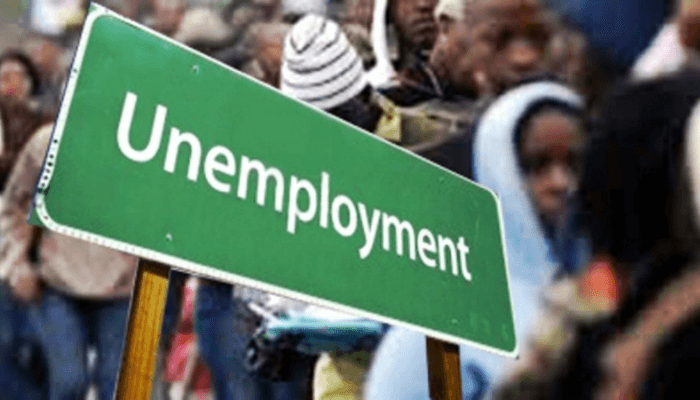One of the most worrying developments in Nigeria now is the growing levels of unemployment in the country, which threatens to assume social implications. And as would be expected, virtually all of the 2023 presidential candidates are promising to reduce Nigeria’s staggering 33 per cent unemployment rate.
By the International Labour Organisation standard, a person is employed when they work at least 40 hours a week. The working age is regarded as between 15 and 60. Currently, 33.3 per cent or 27.7 million of the 84 million people who should be working in Nigeria are jobless. For Nigeria’s population, an acceptable level of unemployment would be 4 percent to 6 per cent, between 3.3 million and 5 million.
The country’s underemployment rate – people who work less than 20 hours a week – is also high at 22.8 per cent.
Nigeria has been experiencing steeper dwindling fortunes in employment in recent years. Whereas a major contributing factor to the problem can be attributable to unstable prices of crude oil on the international market, policy flip-flops have also contributed their fair share to the problem.
There’s been a lot of uncertainty, largely due to policy inconsistencies, about where people should invest. This cuts across various economic sectors. For example, exchange rates were left fixed from 2016 until the distortions in the market became chaotic. That was when some form of flexibility was allowed in the determination of the exchange rate, following the push and pull of market forces. Also, land borders were arbitrarily closed to imports, despite the frosty relationship that ensued between Nigeria and her ECOWAS sub-region partners, notably Ghana and the Republic of Benin. This had a direct impact on the prices of items.
These policy somersaults also caused capital flight. Political uncertainty played a role in the downward trend of markets. In the equities market, huge foreign portfolio investments were lost. There has also been a downturn in portfolio investments, fixed capital investment, foreign direct investments, and capital importation.
The result has been job losses and a dwindling capacity to create jobs.
Added to that, the poor performance of different sectors of the economy, especially the agricultural sector, has created uncertainty and unemployment. The recurring farmer-herder crisis has had a negative impact on agricultural labour and production. Not to forget the ravaging effects of the just-receded national flood.
Then there is the issue of Nigeria’s weak currency, which has been bad for manufacturing. Since many people only have access to foreign currency through unofficial sources, prices of raw materials for manufacturing have affected the sector and its output. Several organisations cannot scale or employ more people.
Poor infrastructure in the economy is another critical factor. For instance, farmers need to move their goods to markets. The routes that link the farms to the cities are in poor shape, resulting in agriculture products perishing along the way. Power supply is erratic and security is poor. These factors add up to a poor level of investment.
Also, the cost of transporting goods within the country is high. A recent report says it is five times more expensive to transport goods within the United States than it is in Nigeria. That scenario extends to the ports where bureaucratic bottlenecks hamper smooth exports of goods, which affect especially agricultural products that are perishable.
In the midst of this, labour supply is growing. People are graduating from higher institutions while demand for labour is shrinking. There are not enough jobs for young people leaving school.
To put a stop to this worsening situation, the government needs to align its policies well in tune with reality. The government must address insecurity so people can go about their normal business. Government must also ensure a unified exchange rate so that imported inputs are cheaper. That will expand production and create jobs.





